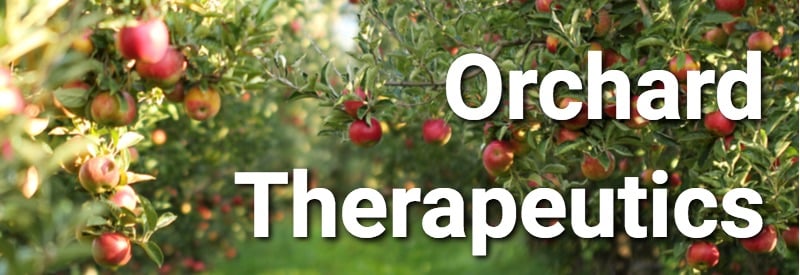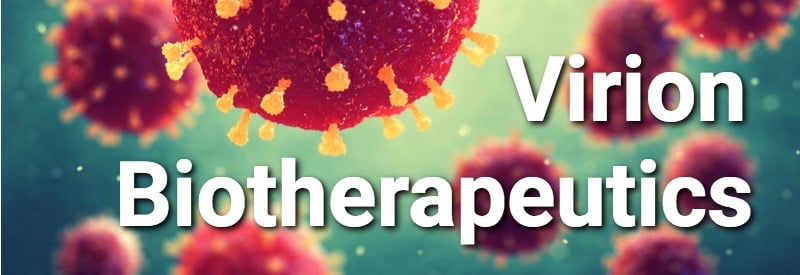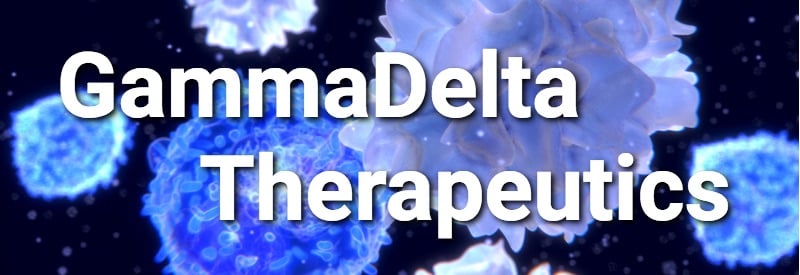As 2018 drew to a close, we had a look at how many companies had been doing and what their prospects were for the new year. It’s hard to narrow it down, but we think these European biotechs are going to make headlines this year.
Last year was a great year for biotech in Europe. The list of biotech companies valued at more than €1B grew, and we saw some big acquisitions, including those of TiGenix and Ablynx.
This year appears as promising, with many companies expecting important results, starting critical clinical trials, and taking their business to a whole new level with recent big fundraising rounds. All of them would not fit in this list, so we asked several experts which biotech companies they expect to make the most noise in 2019. They are listed in no particular order.

Based in London, Orchard Therapeutics went directly into the European billion-euro club last October with an impressive IPO on the US Nasdaq. The company is developing gene therapies for inherited conditions that affect the immune system. With the money raised by its IPO, Orchard is planning to complete clinical development for its three lead gene therapy candidates and hopefully get them to the market.
The company will also be pushing forward an extensive pipeline of gene therapies still in preclinical research stages. In 2019, we’ll also see how well Strimvelis, a gene therapy that Orchard acquired from GSK in March, performs commercially.

Last November, the Swiss company CRISPR Therapeutics started the first clinical trial in Europe to test a treatment for the blood disorder beta thalassemia based on the promising yet controversial gene editing tool CRISPR-Cas9. Although the trial is not expected to finish until 2022, in 2019 the first patients will be treated with the technology and we’ll get to know whether the therapy proves safe in the short term.
In October, the FDA lifted a hold on running a similar trial testing a therapy for sickle cell anemia in the US, meaning CRISPR Therapeutics will also be testing CRISPR-Cas9 technology in humans for the first time in the US as well as in Europe.

Founded in 2014, DNA Script is developing a new biological method of synthesizing DNA that has the potential to significantly reduce the time it takes to make custom DNA sequences in the lab. This technology could finally remove the big bottleneck in writing DNA, which at the moment is much slower and more expensive than reading it. As the price drops, it could allow very exciting applications such as using DNA as data storage.
This year, the Parisian company revealed it was able to synthesize, for the first, time a 150-nucleotide DNA sequence with high accuracy. This feat put it at the same level as current chemical methods to synthesize DNA, and the company has stated it expects to be able to synthesize several hundreds of nucleotides in 2019. Having expanded to the US in November, the company is getting ready to refine and launch its technology worldwide.

Enterome, founded in 2008, is one of the most advanced companies in the microbiome space. In October, it signed a deal worth up to €600M with Takeda concerning its lead candidate, which targets specific bacteria in the gut that are deemed responsible for the inflammation seen in people with the autoimmune gut disorder Crohn’s disease. Following the deal, the drug candidate is expected to start phase II trials in 2019.
The French company is also developing companion diagnostics for its microbiome treatment, using a personalized medicine approach. The diagnostic test is intended to determine which patients will benefit from the targeted therapy.

Celyad has reported very promising data this year for its cancer fighting CAR-T cell technology. Founded in 2004, the company is developing an improved version of CAR-T cell therapy, a technology that was introduced in Europe this year and has shown impressive results in difficult to treat forms of blood cancer.
The Belgian company has proved it can target solid tumors with its CAR-T cell technology — a significant challenge in the field. In addition, its CAR-T cell therapy has been the first to show efficacy without having to previously treat patients with harsh courses of chemotherapy. With preliminary clinical data released in November, we expect the company to release more results during 2019.

Founded in 2015 and located in Barcelona, AELIX Therapeutics develops therapeutic vaccines for HIV. This year, the company managed to sign a deal with Gilead, a leader in the HIV drug field. The companies will test a combination of AELIX’s vaccine and Gilead’s HIV drug vesatolimod in a first-in-human clinical trial that is due to start in 2019.
The new year will likely bring other exciting developments in the HIV space. For example, the French company Abivax is due to start phase IIb trials with a treatment that has potential to become a ‘functional HIV cure.’

AMSilk creates materials made of spider silk protein produced by engineered bacteria. This German biotech is one of the synthetic biology companies with the largest annual production in Europe, and is working on several exciting projects, including a biodegradable shoe for Adidas and more stable vaccines.
This year, AMSilk entered an agreement with Airbus for the development of a light-weight, resistant material made partly of spider silk. The companies expect to have a prototype ready in 2019, leading the path for synthetic biology to realize its potential to benefit all sorts of industries.

Virion Biotherapeutics is developing ‘universal antivirals’ for respiratory viruses that cause colds and flu. These drugs could target multiple types of viruses at once and prevent the development of resistance against the treatment.
Based in London, the company has been busy this year gathering a strong management team and appointed, as Chairman of the Board, Edwin Moses — previously the CEO of Ablynx, a Belgian company that was acquired earlier this year by Sanofi for a massive €3.9B. With the new team in place, Virion is likely to be searching for funding in 2019.

One of the few billion-euro biotechs in Europe, argenx is set for a big year with a recent deal it signed with Janssen, worth up to €1.4Bn. The partnership covers the development of a therapy for acute myeloid leukemia, which had very promising results in a small phase I/II trial earlier this month.
The Dutch company has a unique spin on antibody technology, taking inspiration from llamas, whose antibodies can recognize very different targets as compared to human antibodies. The company has a pipeline of antibody drugs targeting inflammatory and autoimmune disease as well as cancer, from which we expect more news in 2019.

The young GammaDelta Therapeutics, founded in 2016, has had a big year as its technology gets close to the clinic. The London-based company develops cell therapies for cancer using on a rare type of immune T cells called gamma delta T cells that can better infiltrate into and kill solid tumors.
This year, the company moved into bigger facilities, acquired a Portuguese startup to get hold of its gamma delta T cell technology, and appointed a Chief Medical Officer to start preparing for clinical trials.
Another company to watch out for in the same space is Gadeta, which has started one of the first trials with a cancer treatment based on gamma delta T cells.

Autolus had a big IPO on the US Nasdaq in June last year. It raised €130M that helped the company quickly reach a market cap above €1B. Founded in 2014 as a spin-off of University College London, the company develops a new generation of CAR-T cell therapy that could tackle the life-threatening side effects of this promising cancer treatment.
With the funds raised in the IPO, Autolus will push the clinical development of its CAR-T cell technology in 2019, when we expect to see some preliminary results.

Avantium, a spin-off from Shell, is developing renewable bioplastics made 100% from plant-based materials with the support of big partners such as Coca-Cola or Danone, for which the Dutch biotech is developing sustainable PlantBottles and yogurt cups, respectively.
This year, Avantium opened a pilot biorefinery plant in Groningen, the Netherlands, to produce sugars and lignin. In 2019, the company expects to start scaling up the plant to commercial scale, as well as opening a demonstration plant to produce bio-based monoethylene glycol, a material used in the production of plastics and polyesters.

Nouscom is a Swiss-Italian biotech developing immunotherapies for cancer. One of the technologies the company is developing consists of ‘genetic vaccines‘ that can confer protection against an unprecedented number of cancer targets. Another of its technologies uses oncolytic viruses to selectively kill tumor cells while strengthening the body’s immune response against cancer.
The company, founded in 2015, is still in preclinical development with its therapies, but seems to be attracting a lot of pharma interest that we expect to grow during 2019.

The French company Genfit is nearing the finish line of the development of a drug for the liver disease non-alcoholic steatohepatitis (NASH), for which there is currently no treatment. The company expects to release data from a phase III clinical trial in patients with NASH by the end of 2019. If successful, Genfit might become the first to launch a drug for this indication.
In early 2019, the company is planning a public offering likely to fund the last steps of development and commercialization of its drug.

AgroSavfe is a Belgian company working on biological solutions to protect crops. Founded in 2013, the company develops biological fungicides derived from the antibodies of animals like llamas that are very specific to their target. Thus, other insects, pollinators, farmers and consumers are not harmed.
The ultimate goal is to produce these biofungicides at industrial scale to make them cost-effective. After raising €11M in a Series B fundraising this year, AgroSavfe will be seeking the international registration of its technology in 2019.
Images via Shutterstock





